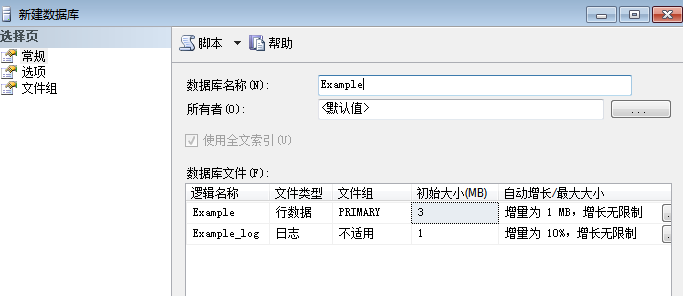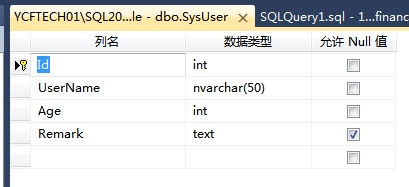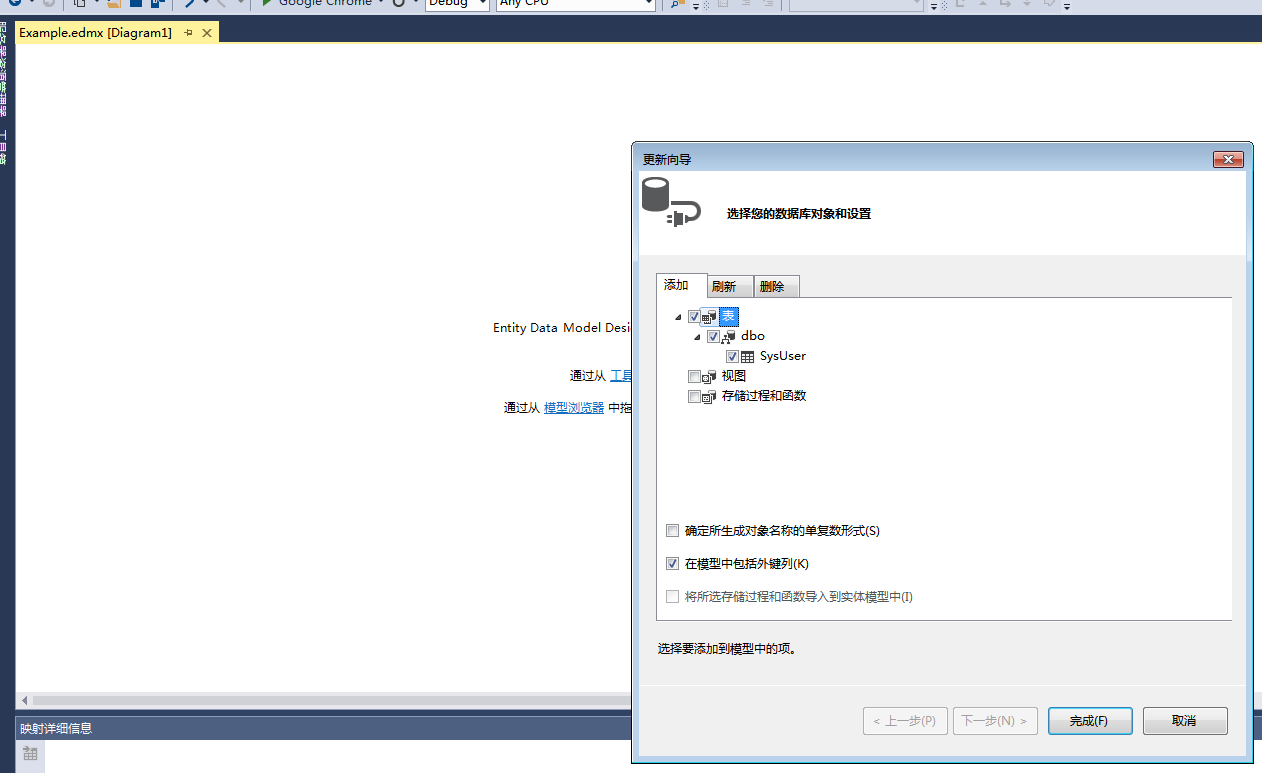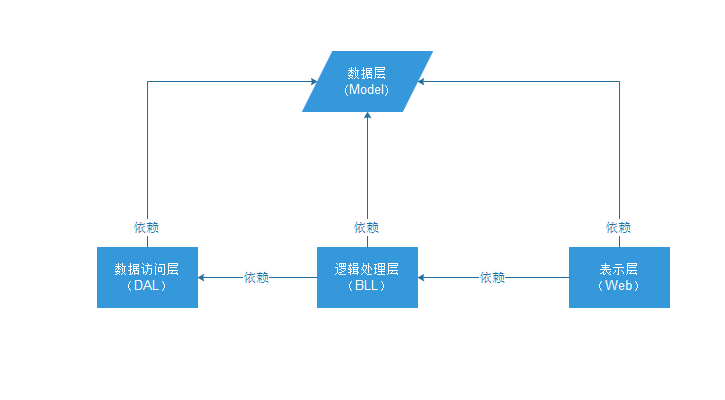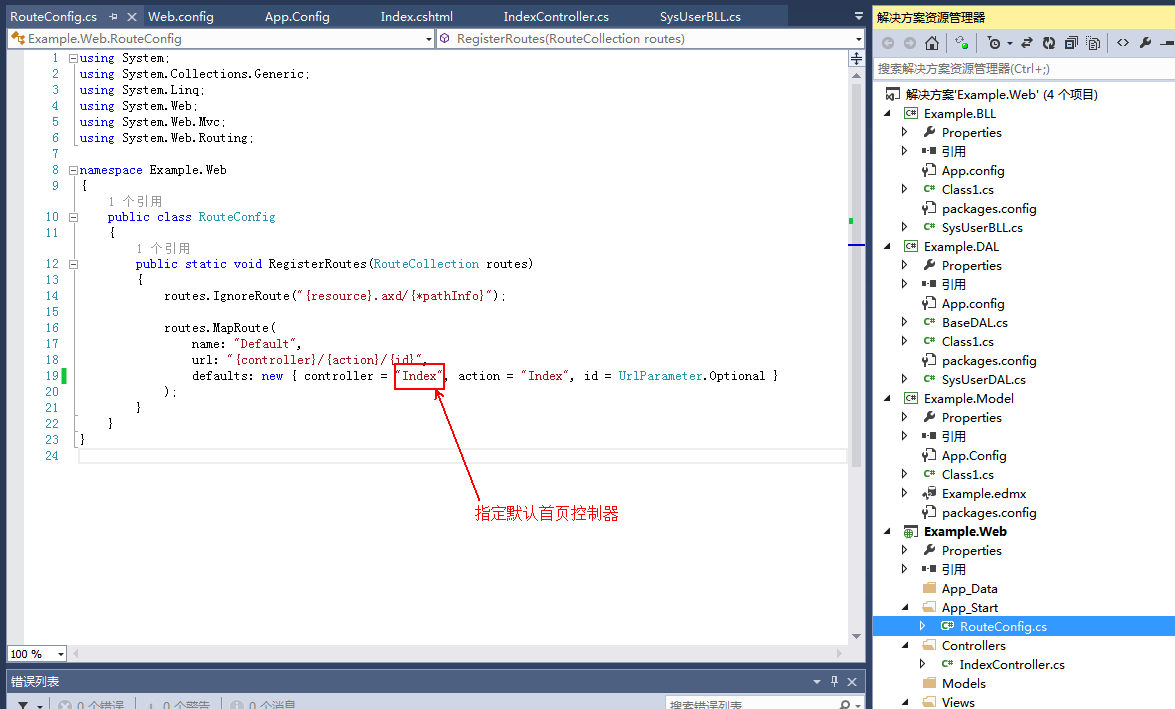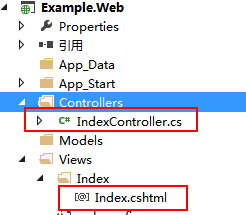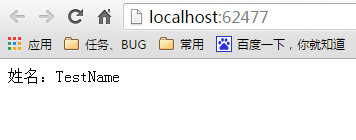.Net框架搭建之1、SQL Server EF MVC簡單三層框架
.Net簡單三層框架簡介
簡單三層框架,是.Net開發中最最基礎的框架了,由 資料訪問層、邏輯處理層、表示層組成。一般情況下,在專案中資料模型Model層也是單獨一層,但是隻是單純的資料模型不算在業務層劃分當中。
好了,框架搭建,如果不瞭解,可能會覺得難以下手,瞭解之後,自然知道怎麼做,只是其中的步驟,比起單純的功能開發,是要繁瑣不少,下面我們來一步一步搭建屬於自己的框架,這裡只列出重要步驟,其他未提到的細節可自行摸索。
資料模型Model層建立
資料模型層,首先要建立資料庫,再從資料庫生成EF模型。
建立資料庫,表,新增一條測試資料
新建類庫,新增實體資料模型,連線資料庫,獲取表結構到實體模型
首先,新增類庫 ,名稱:Example.Model
再新增實體資料模型:
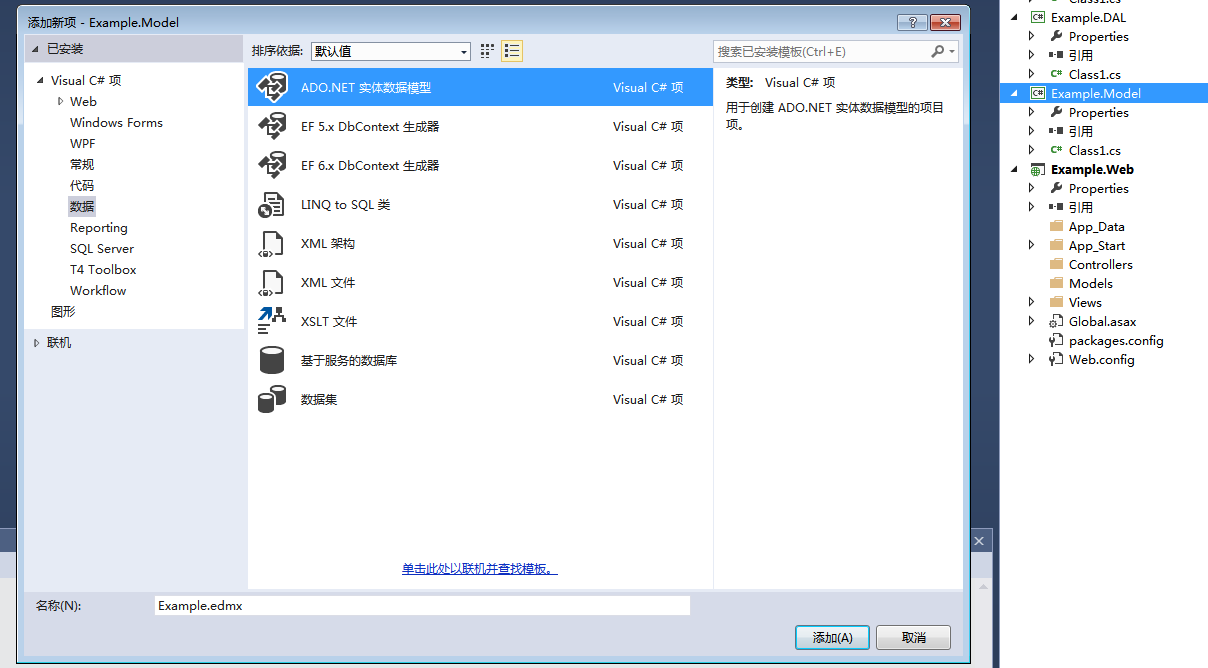
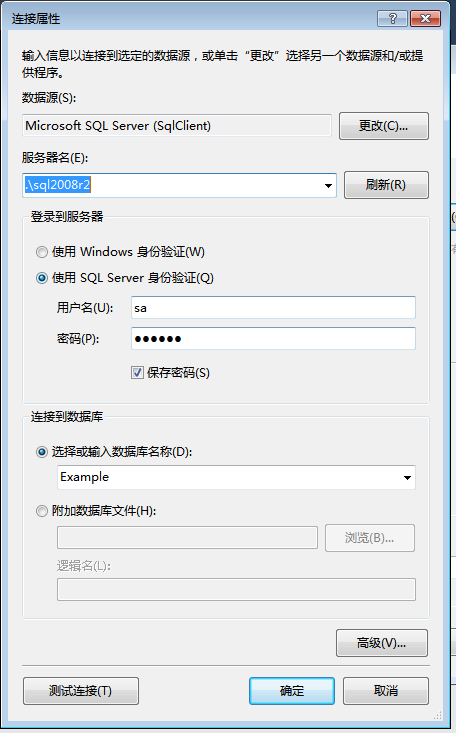
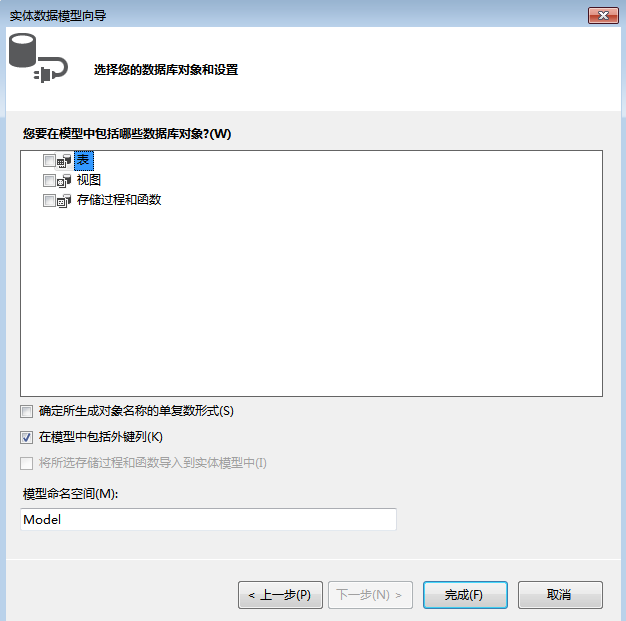
至此,Model資料層算了完成了。
DAL資料訪問層建立
由於我們事件知道有幾層,所以,先把所有的類庫專案全部先建立好,web為MVC的空專案,至於各層程式碼,分到各層再去處理
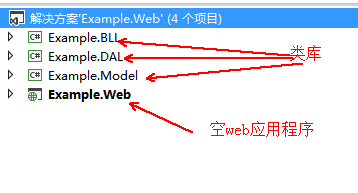
由於使用EF,為了方便使用EF擴充套件,先用nuget新增一個擴充套件包
EntityFrameWork.Extended,版本使用預設的就行。
新增好之後,就可以新增一個BaseDAL的類了,是為了方便DAL層操作的。
BaseDAL.cs
using System;
using 有了BaseDAL這個類,我們就來建立具體針對表的 SysUserDAL.cs
SysUserDAL.cs
很簡單,我們就寫個方法讀取資料庫中之前新增的一條測試資料
using System;
using System.Collections.Generic;
using System.Linq;
using System.Text;
using System.Threading.Tasks;
using System.Data.Entity;
namespace Example.DAL
{
public class SysUserDAL : BaseDAL<SysUser>
{
public SysUser GetUserById(int id)
{
return Entities.Where(o => o.Id == id).FirstOrDefault();
}
}
}
BLL邏輯處理層建立
在Example.BLL 專案中,新增 Example.BLL.cs
Example.BLL.cs
using Example.DAL;
using Example.Model;
using System;
using System.Collections.Generic;
using System.Linq;
using System.Text;
using System.Threading.Tasks;
namespace Example.BLL
{
public class SysUserBLL
{
private SysUserDAL _dal = null;
public SysUserDAL dal
{
get
{
if (_dal == null) _dal = new SysUserDAL();
return _dal;
}
}
public SysUser GetUserById(int id)
{
return dal.GetUserById(id);
}
}
}
BLL層內容也就完成了
BLL層就這麼簡單,如果不做資料方面的判斷,直接呼叫DAL層的方法就行
MVC Web 表示層處理
先簡單修改一下預設路由
建立首頁控制器和頁面Razor檢視
Index控制器中修改action為Index的方法
private SysUserBLL _BLL = null;
public SysUserBLL BLL
{
get
{
if (_BLL == null) _BLL = new SysUserBLL();
return _BLL;
}
}
//
// GET: /Index/
public ActionResult Index()
{
ViewBag.FirstUser = BLL.GetUserById(1);
return View();
}Index.cshtml頁面顯示的修改
@{
Layout = null;
var model = ViewBag.FirstUser as Example.Model.SysUser;
}
<!DOCTYPE html>
<html>
<head>
<meta name="viewport" content="width=device-width" />
<title></title>
</head>
<body>
<div>
姓名:@(model!=null?model.UserName:"空")
</div>
</body>
</html>
執行效果:
此文章一步一步介紹如果搭建簡單三層 ef mvc框架專案,關鍵流程和程式碼都已貼上,按步驟來應該可以正常執行,如果不能正常執行,可以同我交流,可以加補一些更詳細的步驟。
後續會加上另外幾種框架。

